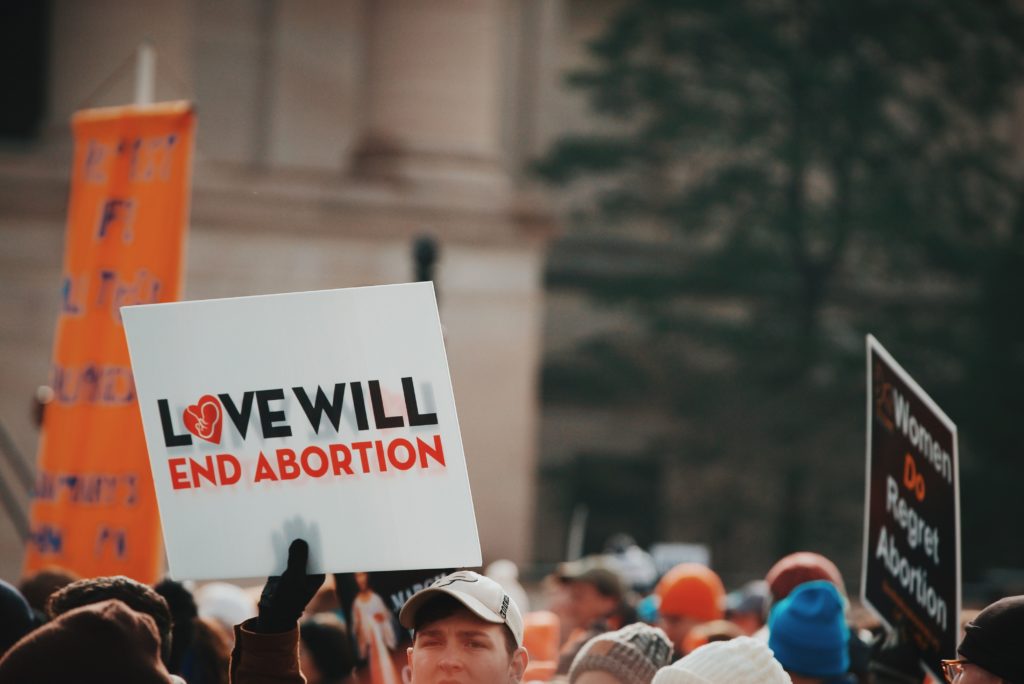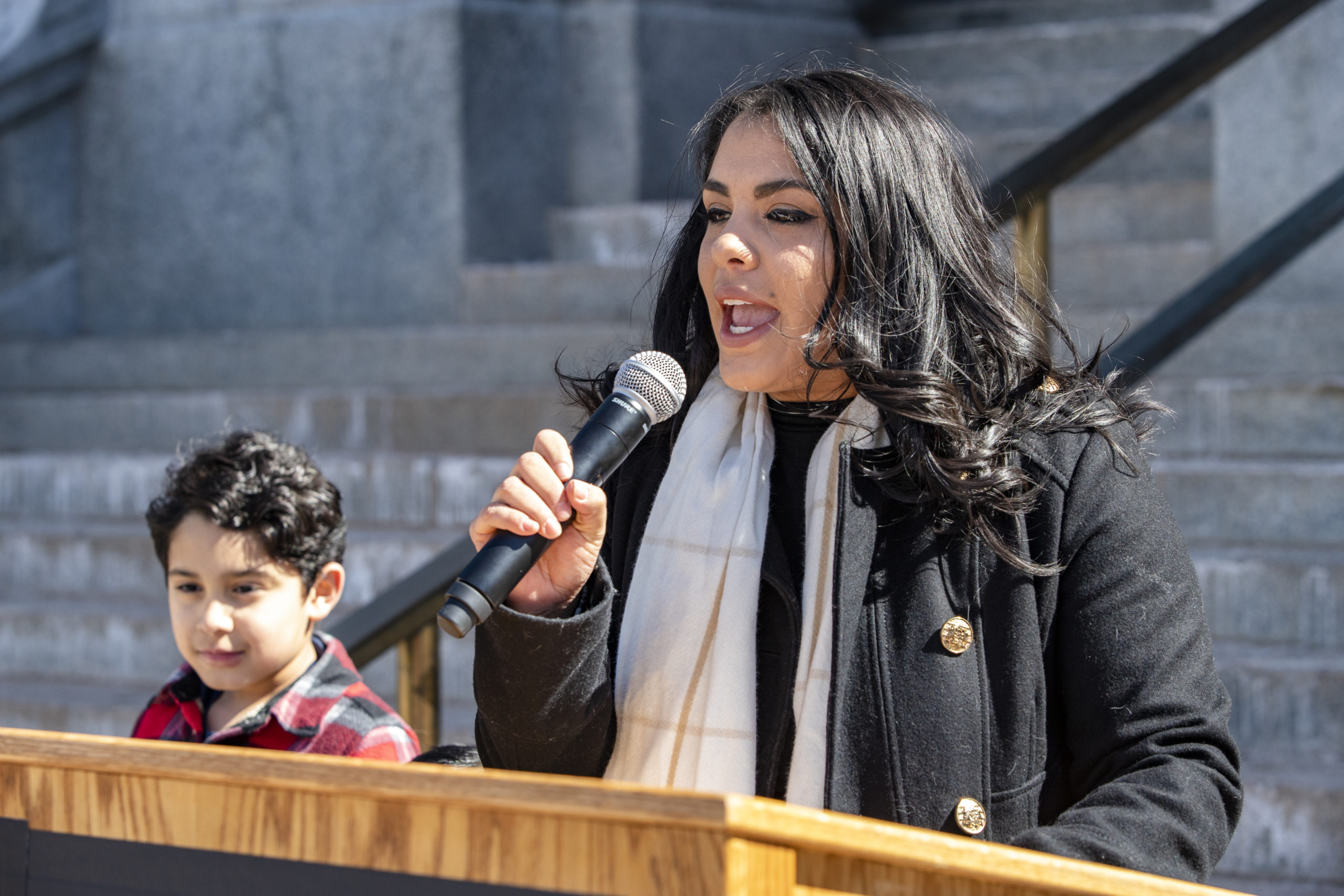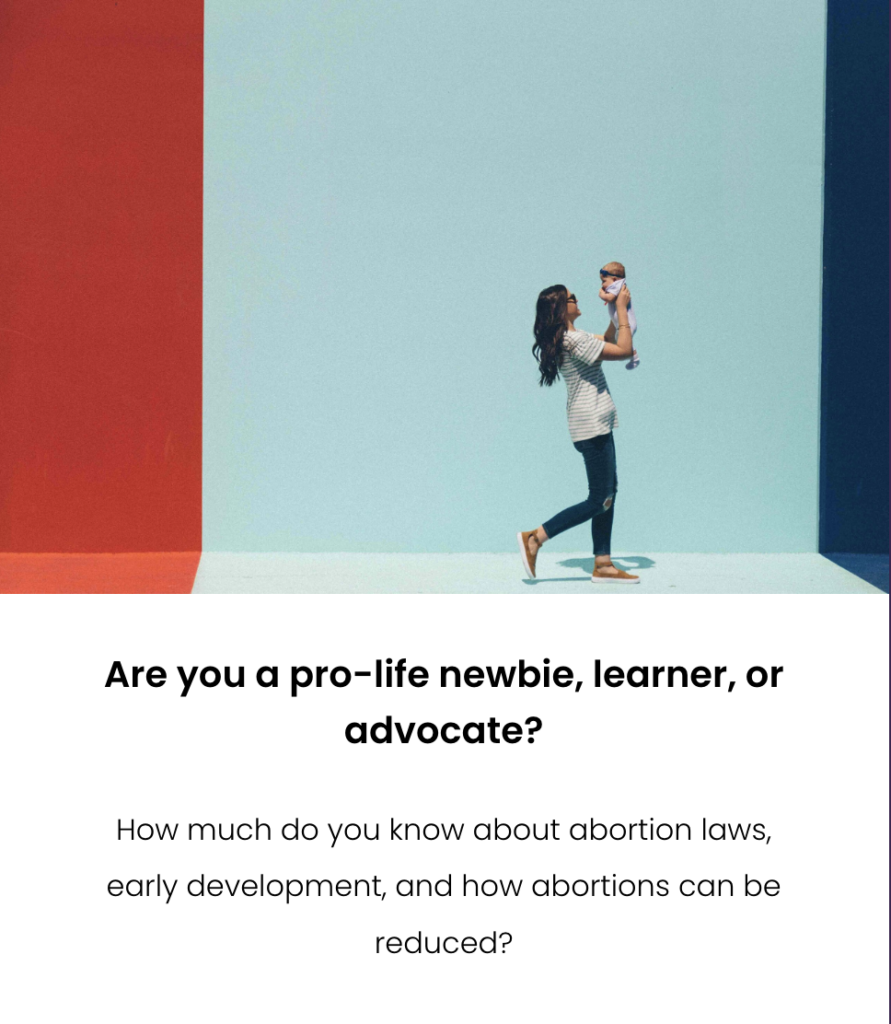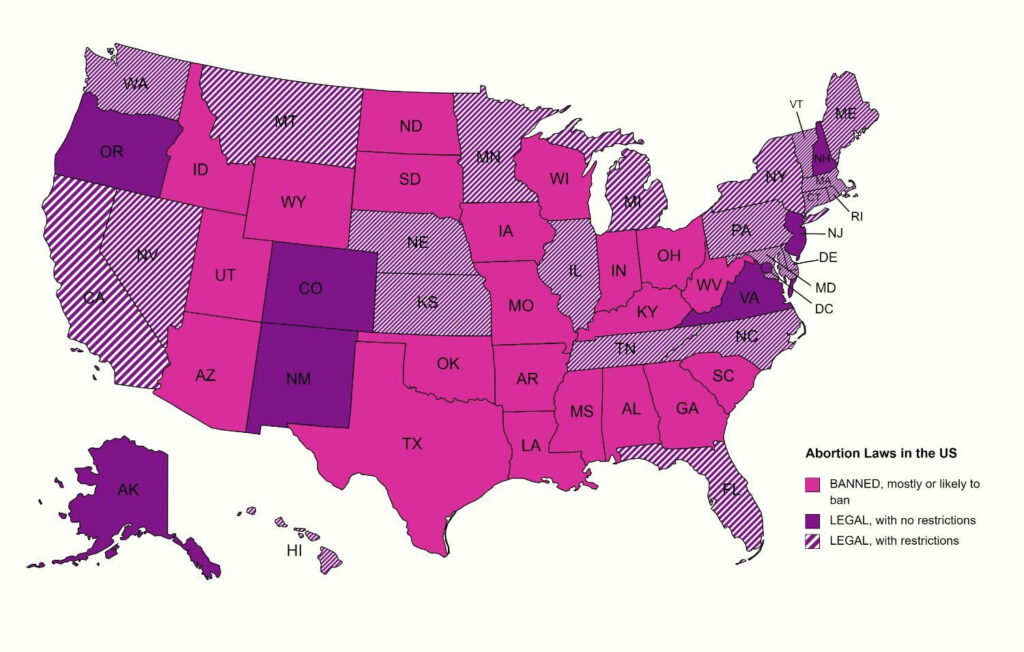ALTERNATIVES PREGNANCY CENTER
Roe V. Wade: Everything You Need To Know
With recent historic overturn of Roe v. Wade, abortion rights were returned to the states. While we celebrate a win in protecting life, navigating a post Roe v. Wade world is complicated.
Here’s everything you need to know.

Are you a Pro-Life Newbie, Learner, or Advocate?
How much do you know about abortion laws, early development, and how abortions can be reduced?
Everything You Need to Know
National conversation in recent months has centered around abortion, especially with the recent overturn of Roe V. Wade. With recent Supreme Court decision on the Dobbs v. Jackson Women’s Health Organization case, which challenged and overturned the historical abortion ruling, the national landscape around abortion has changed dramatically.
There are two major cases to understand as they relate to future abortion legality across the country and the upcoming Supreme Court decision.
Roe v. Wade was a landmark 1973 decision that ruled abortion as a constitutional right. In this case, the Supreme Court ruled that a woman’s choice to have an abortion outweighs the state’s concern for prenatal life up until the “point of fetal viability”, or the point when a fetus can survive outside the womb (in 1973, this was determined to be 24-28 weeks).
Since this decision, abortion has been a federally protected right, regardless of state laws.
Since Roe v. Wade, many states have introduced legislation to attempt to limit abortion availability. Mississippi has a new law banning abortion after 15 weeks. Jackson Women’s Health Organization is bringing the issue to the Supreme Court, arguing that the state law runs contrary to the ruling of Roe v. Wade and the constitution.
For the first time in nearly 50 years, the Supreme Court is agreeing to hear a case involving a ban on abortions younger than the point of viability established by Roe v. Wade at 24-48 weeks.
If the Supreme Court rules in favor of Mississippi, declaring that the Mississippi law is “constitutional”, Roe v. Wade and its protections of abortion rights would be overturned and other states would be free to place their own limits on abortion based on fetal age.

Pro-life lawmakers across the country have been teeing up legislation to protect prenatal life in hopes that Roe v. Wade will be overturned.
No, if Mississippi wins, the Supreme Court would be revoking its 1973 ruling that abortion is a constitutional right, regardless of state law. In this case, the battle for human right to life would be determined by state law.
While giving states the power to protect human life is a major win, the fight is far from over. At individual state levels, abortion is now a battle, including Colorado, where Alternatives Pregnancy Center works.
Less abortions means that more women will need support through their pregnancies. Pregnancy centers like Alternatives will be more important than ever in providing resources and care to new mothers and fathers. Studies show that if abortion is not available, many choose life rather than seek an abortion, providing an excellent opportunity for pregnancy centers to support these women.
Alternatives is now also a resource for women who are seeking an abortion from outside the state of Colorado.
Programs that support women after birth and support life both inside and outside the womb will be critical and need increased funding.
Anticipating a possible reversal of Roe v. Wade, some states enacted anti-abortion laws to protect life and ban abortions if the decision moved to the state level. In Colorado, lawmakers are doing the reverse.
Colorado legislators moved quickly to strengthen the already liberal abortion state laws and introduced The Reproductive Health Equity Act (RHEA) (HB22-1279) on March 3, 2022. The bill was signed into law by Governor Polis on April 4, 2022.
Crisis centers like Alternatives will be more important than ever in providing resources and care to new mothers and fathers, and require increased support and funding. Find out more about Alternatives.
Download Now
How Pro-Life Are You?
How much do you know about abortion laws, early development, and how abortions can be reduced?

A Post Roe V. Wade World

Above you can see the current abortion laws by state. Colorado has legalized full term abortions, but many surrounding states have banned or restricted abortion access.
This means that women are traveling to Colorado for abortion access. Alternatives gives women support to choose life not just in Colorado, but now for hundreds of women in surrounding states as well.
Join the Newsletter
Stay updated on pro-life news and work to provide women with meaningful alternatives to abortion.
Make a Donation
Just $13.70 provides 10 women with access to a helpline that is always available to give them options.
Join our Prayer Team
Join us in praying for support and protection for the women we serve.
Being Pro-Life in a Post Roe v. Wade World
After the supreme court overturned Roe v. Wade, the work of pro-life activists got even more important as abortion laws became determined state by state. In Colorado where Alternatives works, women began traveling from nearby states to receive a legal abortion. More women than ever before need access to support in order to be empowered to choose life.
Join the newsletter to stay updated on Alternatives work to support women in providing a meaningful alternative to abortion.
Alternatives Pregnancy Center offers women a network of support so comprehensive and caring so that every woman can be fully informed of her alternatives before making a decision. We offer resources for pregnancy and parenting so that women are supported before and after birth.






